The Undoing director Susanne Bier on Nicole Kidman’s ‘uncanny’ talent
Susanne Bier, Danish director of The Night Manager, on TV’s sky-high standards as she brings to life a compelling miniseries starring Nicole Kidman and Hugh Grant
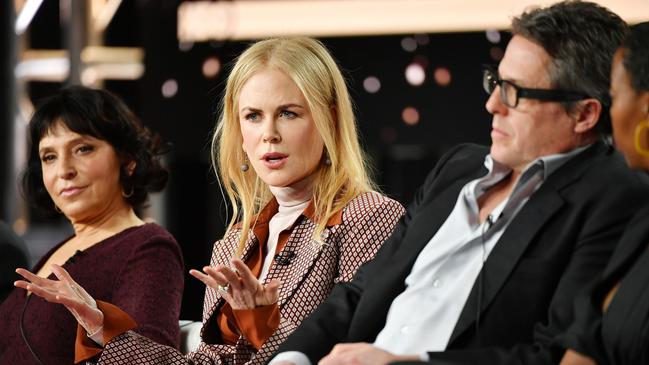
As a director and writer of feature films for almost three decades, Susanne Bier is a huge name in her native Denmark, and the only female director anywhere to have the awards trifecta of Oscar, Golden Globe and an Emmy to her name.
In the now wildly popular tradition of Scandivian storytelling, her films are usually moody and charged works. They tend to be family dramas, although she had huge success at home with the romantic comedy The One and Only in the 1990s, which was thought to have been seen by one-fifth of the country’s population when it was released.
But it was in Denmark that her audiences remained — her film In A Better World won the 2011 Oscar for Best Foreign Language Film, following After The Wedding’s nomination in the same category in 2006.
The situation probably wasn’t helped by an arguably unnecessary English language remake of After The Wedding starring Julianne Moore. As Parasite director Bong Joon Ho pointedly noted while accepting a Golden Globe for the film, “Once you overcome the one-inch tall barrier of subtitles, you will be introduced to so many more amazing films”.
Nevertheless Hollywood came calling, as they say, and it was in English, albeit the medium of the moment — television — with the Tom Hiddleston-led The Night Manager, that Bier first cracked global success. The tense, and indeed moody, six-part miniseries landed her the Emmy and Golden Globe. Next followed the hit Netflix horror Bird Box, starring Sandra Bullock, which gave the planet a case of the heebie jeebies before coronavirus stepped in to fill the role for real.
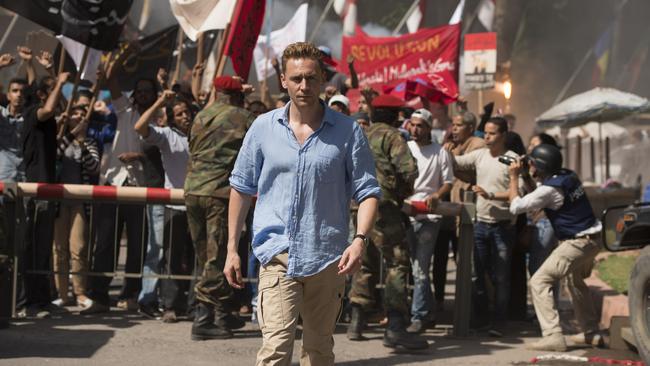
Bier’s latest TV venture is the limited series, The Undoing, starring no less than mega stars Nicole Kidman and Hugh Grant. Kidman plays Grace, a tightly wound couples therapist, and Grant is her husband, a children’s oncologist. Their biggest worries are largely first-world — such as the concern about whether to move away from New York to avoid the petty drama of their navel-gazing social circle — until a mother at their son’s school (played by Italian actress Matilda De Angelis) is found dead.
Bier tells The Australian that limited series such as The Night Manager or The Undoing bear a closer relationship to film, although with “the luxury of time to deal with minor characters and divert from having to stay on a tight narrative … (but) it’s still treated with the same cinematic focus as my films.”
She doesn’t have a lot of patience for series that feel drawn out with episodes — sometimes even whole seasons — that don’t have a reason for being. “One of the things that I enjoy less about television currently is … I quite often feel that some seasons are too long. That some seasons have one or two episodes too many. It lacks steam, lacks intensity. Every single episode needs to be incredibly intense and exciting and vibrant. You can’t allow yourself to even have one episode that is a bit on the soft side.
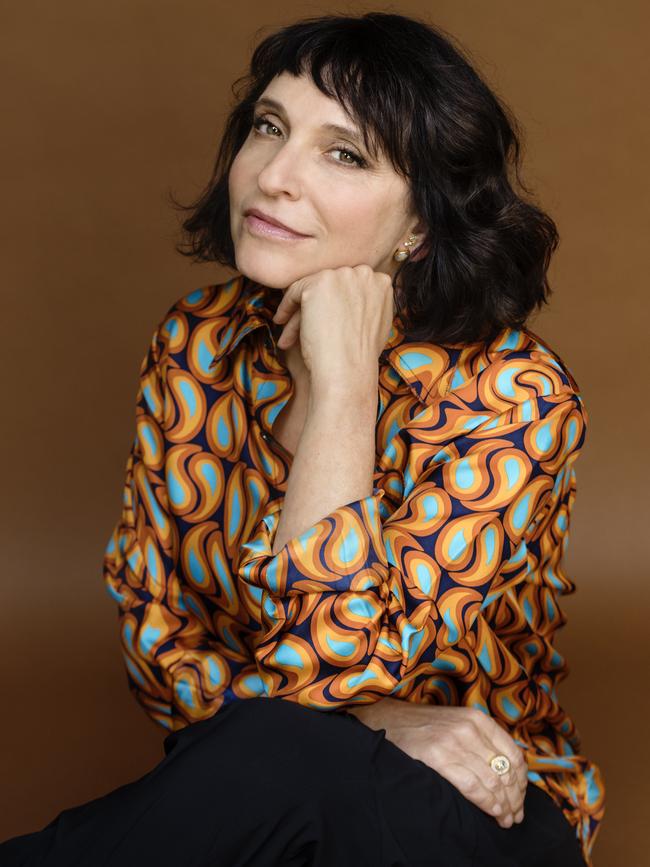
“At this point in time when there’s so much great television, audiences are really discerning and want a cinematic experience.”
Take Phoebe Waller-Bridge, whose show Fleabag disrupted television forever in a mere six hours (for the first season, at least). Bier is a fan: “She’s wonderful, and Fleabag is amaaazing. From the first episode of the first season … I was loving it.”
Like The Night Manager, The Undoing is six episodes, each no more than an hour.
The series is loosely based on a 2014 book by American novelist Jean Hanff Korelitz, which veteran screenwriter David E. Kelley who made his name in the 1990s with quirky legal shows Ally McBeal, The Practice and Boston Legal, bought the rights to after reading.
Bier says she pushed to go darker, beyond a cookie-cutter psychological drama. She describes the result as a drama, “with the engine of a thriller.”
“If you look at literary adaptations,” she says, “a lot of the ones that don’t work don’t work because they cover too much material. They’re too big. There is an amazing sweet spot with the miniseries.”
Kelley had recently worked with Kidman on Big Little Lies, and by the time Bier became involved in the project, she says Kelley had written a draft of the first episode “for Nicole.”
Bier was compelled by the prospect of working with them both. “I think [Nicole] is one of the most exciting and interesting actresses of our time,” she says.
“She has this uncanny ability to just access somebody else’s emotions, somebody else’s mind, somebody else’s physique. [On set], she would be walking differently; she’d be opening the door differently. Every single detail would be different.”
Kidman also acted as an executive producer on the series.
“She’s a director’s friend when she’s a producer. She’s supportive of the artistic endeavour. Completely supportive. And will do whatever it takes.”
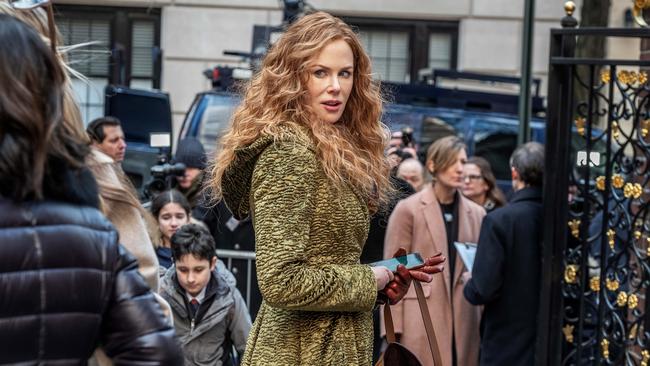
Bier was already familiar with Grant — around a decade ago they were set to work together on a rom com, which was greenlit, but had its start date pushed and eventually fell through.
“There’s a lot of [projects] that don’t happen and you feel like they don’t happen for a reason,” says Bier. But this one, she says, “I still think it would have been great.”
Bier says the treasured British actor, is “a lot of fun to work”. “He’s an amazing creative, a serious actor. He will question every line. He’s very hardworking.”
Evidently, it’s a delight to watch him on set, with a clearly amused Bier adding: “In a way, Hugh is so angry with himself and so frustrated with himself, and that energy fuels his acting in a great way. It’s hugely entertaining. It might not be as entertaining for him as it is for everyone else.”
Bier doesn’t quite know what it is or where it stems from, but says with a laugh: “He’s always kind of annoyed with himself. It’s very funny. It’s full of self-irony.
“It’s very British, and he’s very extreme with it.”
In The Undoing, Grant’s character isn’t the stand-up guy his family and friends believe him to be. How far he deviates from his wife’s perceptions of him — and how she reckons with that — is in part what drives the show. Without giving too much away, Bier points to the book’s title, ‘You Should Have Known’.
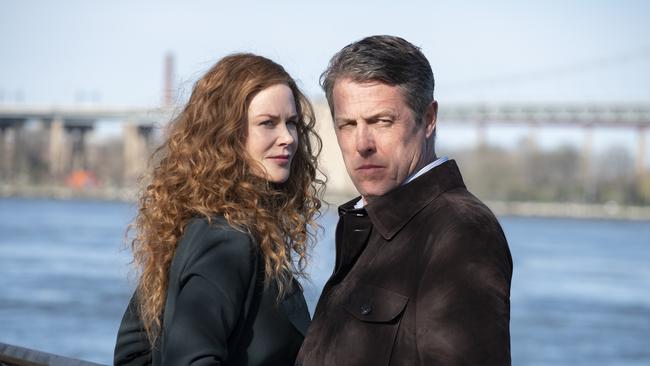
“I think we all do it. Somebody’s late, and we explain it with something which is slightly kinder than the reality. We all have that default tendency to want the world to fit into the preconceived image we have of it.
“It’s one of the bigger themes in the series; this gap between some truth we are faced with, and the way we choose to understand that truth.
“It’s very human. But at times we do it with fatal consequences, with extreme consequences.”
The show also points, subtly and overtly, to the divide caused by race, wealth and privilege, which recent events have brought into stark relief.
“There’s no doubt, the series points to the extremely unequal treatment by the law and by law enforcement between if you’re privileged and if you’re not privileged. You can come out on bail if you have the right kind of lawyer.”
Bier recalls how, during filming of The Undoing in New York, Jeffrey Epstein was charged with sex trafficking offences and was being held in a correctional centre in lower Manhattan. While the series doesn’t deal with Epstein’s crimes, Bier says the parallels with her film were striking.
“Everything about that [case] was very much about how the system protects someone who is such a villain. But because he had the best lawyers in the world, because he knew how to abuse the law, he … wasn’t prosecuted for incredible, severe offences.
“Where does the truth stop and the lies begin? It’s a very murky area.”
The Undoing will stream on Binge from October 26

To join the conversation, please log in. Don't have an account? Register
Join the conversation, you are commenting as Logout